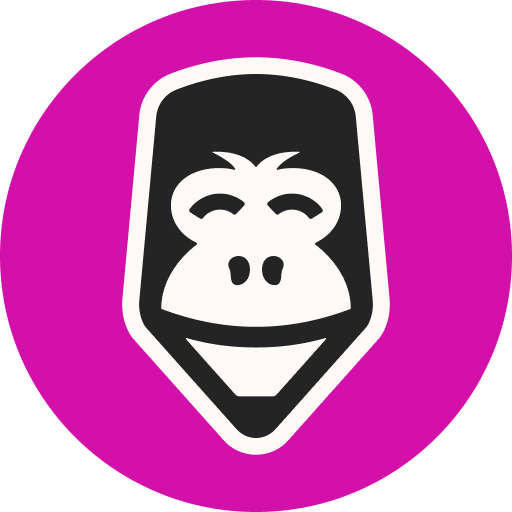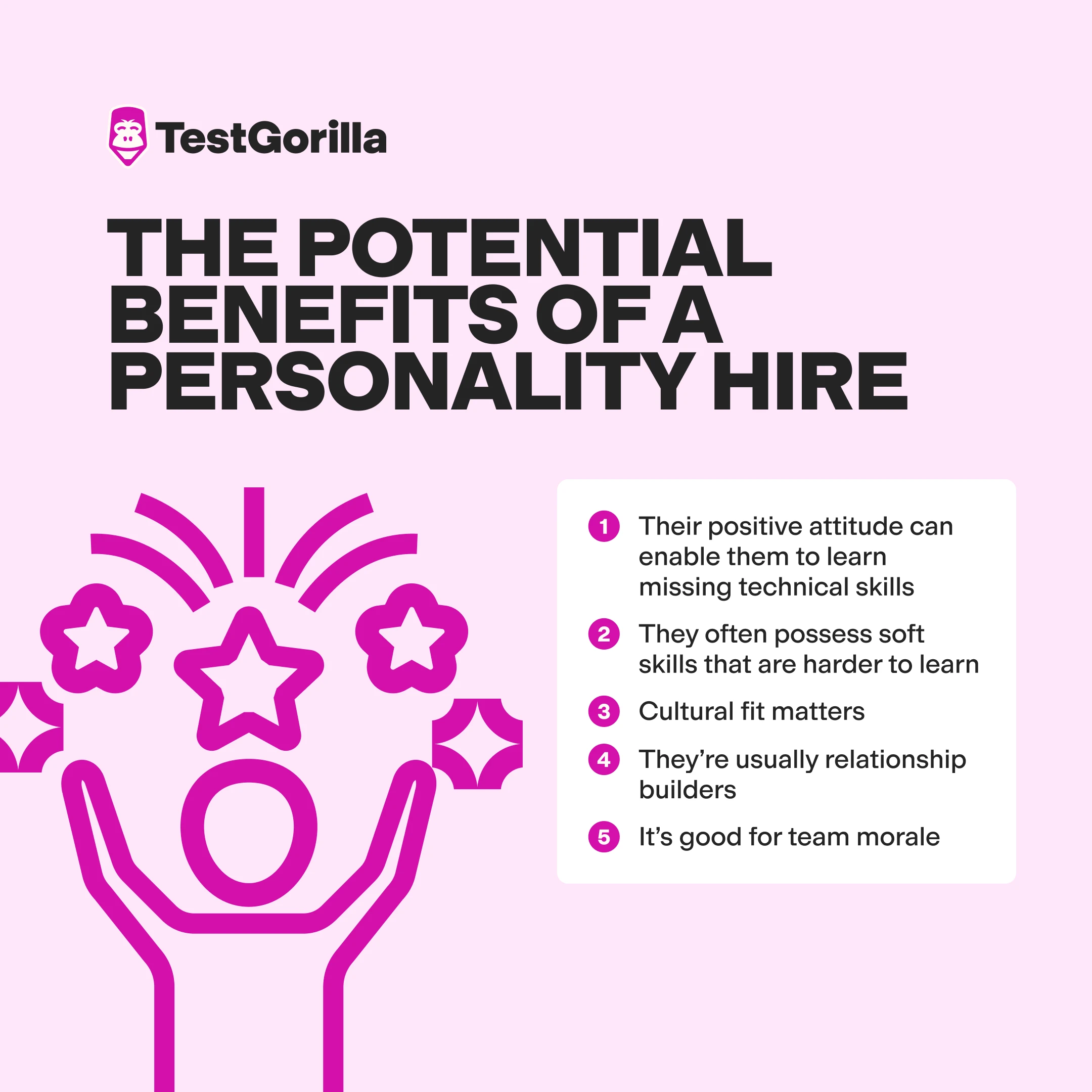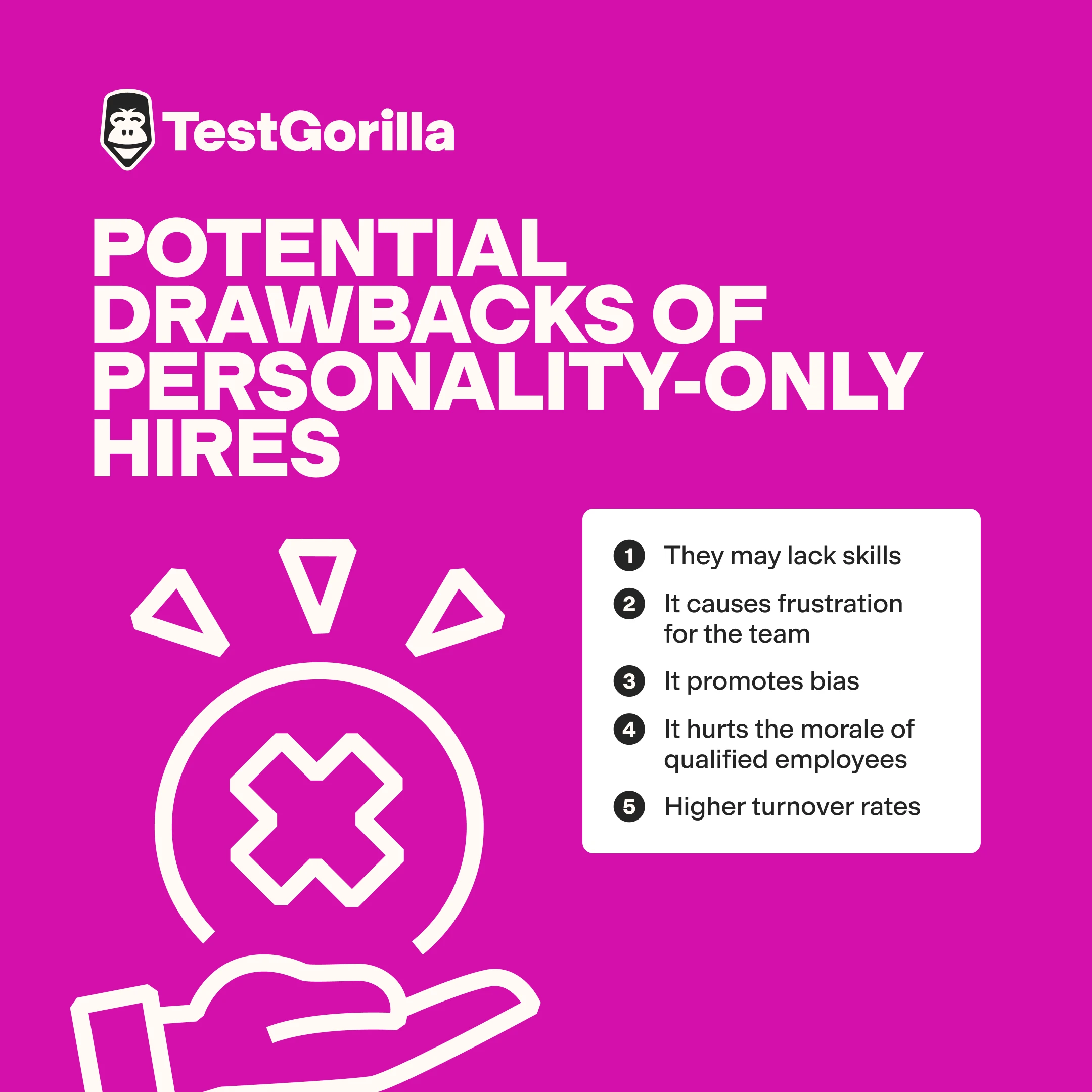Popularized on TikTok, personality hires are usually known for their charming personalities, using their communication abilities and can-do attitude to build strong relationships and strengthen workplace culture.
However, sometimes hiring someone for their personality means overlooking their other abilities. And when they lack the skills needed for the job, this can put pressure on your team.
So, is hiring for personality really worth it? Read on to learn about the pros and cons of a personality hire in a workplace environment, plus some best practices to use when hiring for personality.
What is a personality hire?
A personality hire is a person who’s hired for their personality – rather than their technical skills or experience. Personality hires tend to be outgoing, gregarious, friendly, and helpful. In many ways, they’re a great addition to a team.
However, the issues with personality hires can arise when prioritizing their personality overshadows prioritizing whether they have the skills listed in the job description. Although personality hires typically have many desirable qualities that make them great team players, if they don’t have the right skills, this lack of skills can lead to challenges.
The potential benefits of a personality hire
There are some potential benefits to hiring for character and charisma.
1. Their positive attitude can enable them to learn missing technical skills
Personality hires may not have the technical abilities or experience to do the job upon recruitment. But, with the right mindset and enthusiasm, they can quickly pick up new skills.
A personality hire who’s eager to develop can often outpace a more experienced but disengaged employee.
2. They often possess soft skills that are harder to learn
Personality hires who join your workforce often come primed with strong negotiation skills, emotional intelligence, and natural interpersonal skills that enable them to connect with others. These social skills and personal qualities can be much harder to teach than technical skills.
While training can help someone master a new system or process, it’s far more challenging to instill these soft skills.
3. Cultural fit matters
Workers may spend more time with their co-workers than they do with their families. So, having someone’s personality fit the bill can make all the difference: When someone naturally fits in with the team dynamic or company culture, this can boost morale, improve communication, and even enhance productivity.
Ultimately, bringing in someone who embodies the right energy and values can help shape a workplace that people love being a part of.
4. They’re usually relationship builders
Personality hires tend to be outgoing and chatty, making it easy for them to quickly build rapport and form strong connections with colleagues, clients, and stakeholders. In customer service or sales roles, this is invaluable.
5. It’s good for team morale
Personality hires can offer a positive attitude, enthusiasm, and light comic relief when work gets stressful or tiresome. This spirit can be contagious, boosting team morale and creating a more motivated workforce.
Potential drawbacks of personality-only hires
On the flip side, there can be drawbacks to making a personality hire.
1. They may lack skills
Personality hires usually know how to spin a story. They’re skilled interviewers, using their charm and likability to nail an interview process.
However, this can mean they waltz their way into job roles they aren’t qualified for. Once the initial charm wears off, gaps in their knowledge or abilities can start to show. If they’re unable to deliver on the key responsibilities of the role, it can put pressure on colleagues who must pick up the slack.
2. It causes frustration for the team
If personality hires aren’t pulling their weight, those who must pick up their slack can quickly become frustrated. Colleagues may start to feel like they’re carrying extra work while the personality hire gets by on their charm alone. This can lead to tension, resentment, and fractured team dynamics.
3. It promotes bias
Often, what constitutes a fun or positive personality is a matter of opinion. Hiring managers and recruiters may project their personal preferences onto candidates, favoring those who feel familiar or relatable to them. This unconscious bias can lead to a lack of diversity in the workplace, as hiring decisions become more about personal chemistry than actual skills.
On the other hand, hiring managers may also project conscious biases onto their candidates. For example, if they want an outgoing or gregarious personality, but don’t feel certain ethnicities or backgrounds fit that mold, they might (consciously or not) overlook great talent.
This can make it harder for those with different backgrounds, communication styles, or cultural experiences to get a fair shot, ultimately constituting discrimination – as it did in the case of Best Buy vs. the EEOC.
4. It hurts the morale of qualified employees
Consistently recruiting underqualified personality hires can be demotivating for employees who’ve worked hard to develop their skills and expertise. If experienced team members see charisma being valued over competence, they may start to question whether effort and expertise truly matter in the organization.
5. Higher turnover rates
If your organization starts hiring various unqualified personality hires, team members who aren’t personality hires may become frustrated or disillusioned with the lack of emphasis on skills and performance, leading to burnout. If they feel like they’re constantly picking up the slack for underqualified colleagues, they might even quit.
Your underqualified personality hires might also be affected: Without proper support or training, they’ll realize they aren’t the right fit for the role, leading to overwhelm and feelings of discouragement. Feeling out of their depth, they might also decide to leave.
High turnover can eat into your business profits, wasting valuable time, money, and resources.
Best practices for making personality hires
Here are some best practices to consider when hiring for personality.
1. Don't use just personality to make your hire
Although personality is important, it shouldn’t be the only factor in your decision. Hiring decisions should be based on the various needs of the role – from personality to technical skills.
The key to making a great personality hire is finding the balance between personality and skill. So long as candidates support their charm or other desirable traits with competence, they can be a real asset in creating a positive and connected workplace.
2. Use reputable personality tests
If you use personality tests, ensure they are reputable and backed by science.
TestGorilla’s personality tests, for example, are all backed by science and can give insights into how candidates communicate and collaborate with others. You should aim to have a range of personality types in your workforce to ensure diversity of thought and approach.
3. Define the “why” before the “who”
If you’re passionate about needing specific personality traits in your workforce, define the “why” before the “who” to determine whether this need is based on actual business needs.
Ask yourself:
Why do you need these specific personality traits?
What are you hoping they’ll bring to the table?
Could this be achieved using any other method or workplace dynamic?
Defining “why” you’re hiring for specific personality traits will help you ensure that this decision is based on business necessity – and not on personal whim.
4. Look for culture add, not culture fit
People often think that hiring for culture fit means hiring someone who fits in with your team’s current working style and values. But, hiring too many people with similar thought processes and personalities can lead to groupthink and prevent creativity.
Diversity of thought and experience is still crucial – that’s why we advocate for hiring for culture add rather than fit: looking for people who can enhance your culture.
Having a range of personality types, communication styles, and work styles on your team can enhance problem-solving and drive innovation. These people will challenge the status quo, offering fresh perspectives to your projects and driving change.
The best insights on HR and recruitment, delivered to your inbox.
Biweekly updates. No spam. Unsubscribe any time.
Find the right personalities for your workplace
Personality hires use their gregarious personalities to bring energy, enthusiasm, and camaraderie to the office. While there can be benefits to personality hires, there are drawbacks, too.
Using a talent discovery platform like TestGorilla can give insights into a candidate's personality before you hire them. Tests like the Big 5 (OCEAN) or 16 Personalities test can help you understand their traits, work styles, and what makes them tick before they’re embedded in your team. Plus, with our platform, you can combine up to five tests – including our technical skill, cognitive ability, and other tests – so you can find someone who meets the various needs of the role and not hire based on personality only.
If this sounds like something that could benefit your hiring process, sign up for a free TestGorilla account today.
Related posts
You've scrolled this far
Why not try TestGorilla for free, and see what happens when you put skills first.
















